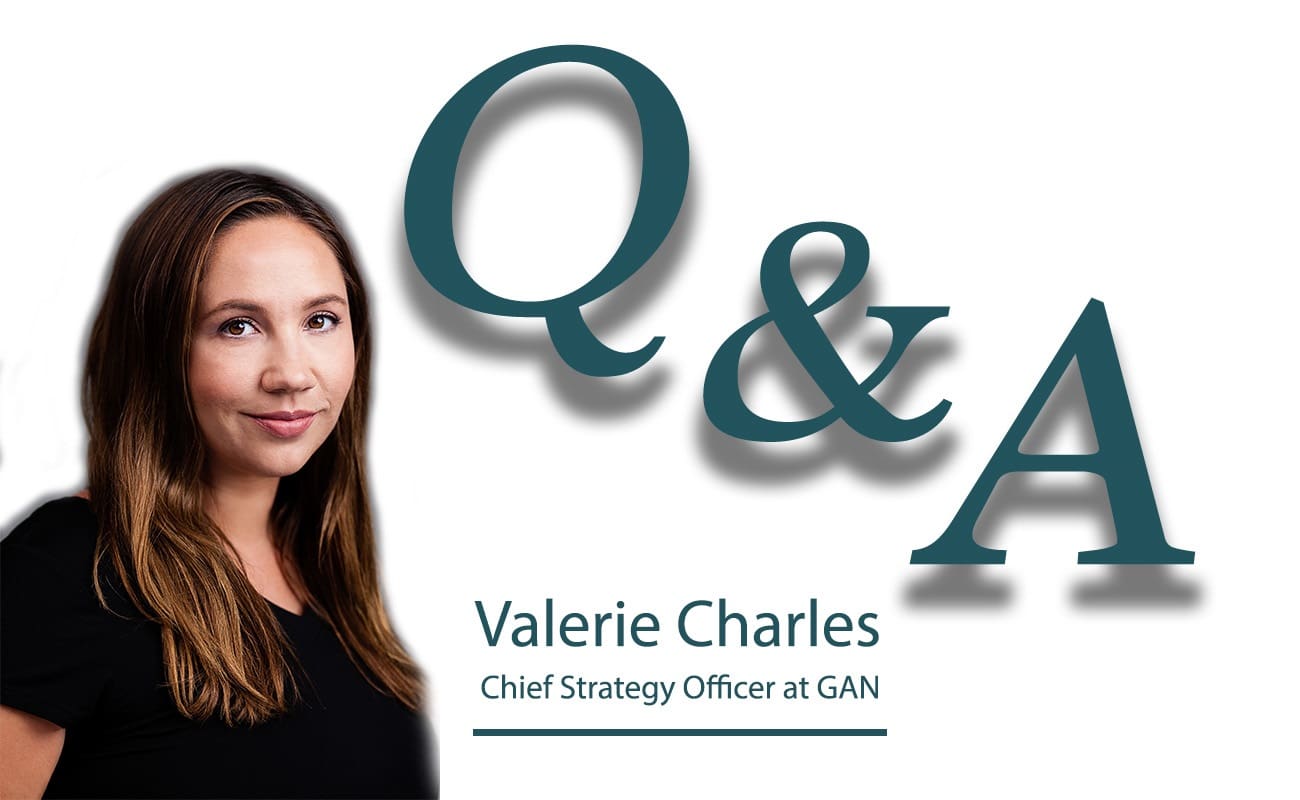Q&A with Valerie Charles, Chief Strategy Officer at GAN
CCI’s Maurice Gilbert interviews Valerie Charles, GAN’s Chief Strategy Officer. Valerie discusses her background, the state of compliance today and where she sees the profession headed.
Maurice Gilbert: How did you get started on a career in compliance?
Valerie Charles: I spent the majority of my career working on white-collar criminal defense matters, with a focus on anti-corruption investigations. When I made the decision to shift to in-house compliance, I had the unique opportunity to build an anti-corruption compliance program from the ground up. I began to think about compliance as preventative criminal work, and I discovered that it was a fascinating challenge to protect the company while maintaining the efficiency of business operations. The best compliance professionals partner with the business to really understand how to place gates and controls that mitigate risk while still allowing the business to operate at maximum speed.
MG: Who helped shape your views?
VC: C-suite executives that landed in the soup in an investigation (aka former clients) taught me a lot, as did my teammates in-house — which included those in finance, sales and marketing. Helping companies after settlements and during monitorships was formative to my views as well, not least because when I worked to improve compliance processes, I realized how truly underwhelming the available technology was at that time. Those were the seeds that eventually led me to join GAN Integrity.
MG: How do you stay current on ethics and compliance issues?
VC: Talking with colleagues, attending conferences and reading online. I read Radical Compliance every day, the FCPA blog, my LinkedIn feed and enforcement agency websites. My work at GAN also keeps me in the know. My role provides a bird’s eye view of and access to different global compliance programs in a variety of industries. Seeing these programs and working with top minds in compliance management helps me understand current issues as they arise and also how we can use technology to help predict and solve them.
MG: What are some of the significant issues facing CCOs, Risk Managers, etc.?
VC: We face an uphill battle with the historical reputation for being the “hall monitor” of our companies when in reality, the CCO should be a true partner to the business, helping to protect the company and its employees while ensuring there are no significant missteps. The reputation is shifting, and some of the visionary folks we work with are ultimately elevating the entire compliance profession.
MG: What do you believe is the optimal reporting structure for the CCO and why?
VC: Most importantly, the CCO should report live to a compliance or audit committee every quarter and in person to the full board once per year. As the DOJ’s 2012 Guidance, the Evaluation of Corporate Compliance Program and FCPA Corporate Enforcement Policy makes clear, the CCO role must be have meaningful authority and be independent and autonomous. I personally believe that the smartest organizations have realized that the CCO should not serve a dual role and should not report into the GC, but rather directly to the CEO.
MG: How do you affect change within your clients’ environments?
VC: The important part is making sure that you are paying attention to the client’s industry, culture, values and operations. A good compliance program needs to be specially tailored, and the way you affect change should both depend on the climate of the business and be revised as the business evolves.
MG: How do you see the CCO role evolving?
VC: Global business is only becoming more complex, and the risk landscape is increasingly tricky. From challenging political dynamics to the increasing frequency and severity of natural disasters, regulators will try to solve problems and businesses will have to adapt. Chief Compliance Officers will be strategic players focusing on risks that threaten growth.
MG: How might Chief Compliance Officers, Chief Audit Officers and Chief Risk Officers prepare to face today’s business and regulatory risks?
VC: In addition to staying on top of the evolving business and regulatory risks at any given time, compliance professionals should utilize modern technology to lift administrative burdens and allow their teams to focus on substantive issues. Historically, compliance teams have been stuck with disparate and siloed systems, which are inefficient and cause terrible headaches for reporting.
MG: How does your company help its clients mitigate risk?
VC: GAN Integrity is a pure technology company that provides the backbone to global compliance programs. We partner with in-house compliance professionals, as well as their outside counsel and auditors to ensure that the technology underpinning the program is addressing risks specific to the business. In my prior in-house position, I had to work with more than five outside vendors to support my program — GAN can do it all. The benefit is not simply about better pricing and more streamlined administration (though that’s a nice benefit), it’s really about having the data all in one system for evaluation and reporting purposes. We are the only fully integrated compliance management platform. The only one. I’m so proud of that.
MG: What new service offerings do you have in the queue?
VC: At GAN, when we think about building out new products or features, we are really just responding to demand from our customers. Our roadmap is directly guided by what we hear in the market and how we can continue to be the gold standard. When customers experienced pain points integrating “boots on the ground” due diligence of third parties into their existing frameworks for baseline diligence, we partnered with Control Risks to address this problem. We’ve also been listening to requests for a better way to manage line item compliance risks after an assessment has identified them. In addition to managing internal investigations, senior management needs transparency into what mitigating actions are taking place, by whom and on what timeline. With technology, the deep dive annual risk assessment can take on new meaning, help define priorities and shift as the business shifts through the year. We are launching this new product now, and it’s creating tremendous excitement within our customer base.
MG: Compliance departments are often asked to accomplish their work with limited resources … do you see this situation changing any time soon?
VC: Resources will always be limited — but they are increasing. Smart business leaders are realizing that the compliance team is not a necessary evil, but can actually serve as a proactive partner and add value. Effective compliance makes the organization more attractive for B2B opportunities and improves the overall health of the business.
 Valerie Charles serves as Chief Strategy Officer at GAN Integrity. With diverse industry experience, Valerie helps define and drive our strategic position in the compliance community, focused on thought leadership and growth strategy. She also leads GAN’s legal function with a focus on compliance, commercial & strategic transactions, employment, litigation and regulatory issues. Valerie has served as outside counsel, conducted internal investigations, and represented clients in connection with matters involving anti-bribery restrictions worldwide. She has also served as Associate General Counsel and Global Compliance Lead for an international technology company.
Valerie Charles serves as Chief Strategy Officer at GAN Integrity. With diverse industry experience, Valerie helps define and drive our strategic position in the compliance community, focused on thought leadership and growth strategy. She also leads GAN’s legal function with a focus on compliance, commercial & strategic transactions, employment, litigation and regulatory issues. Valerie has served as outside counsel, conducted internal investigations, and represented clients in connection with matters involving anti-bribery restrictions worldwide. She has also served as Associate General Counsel and Global Compliance Lead for an international technology company.













